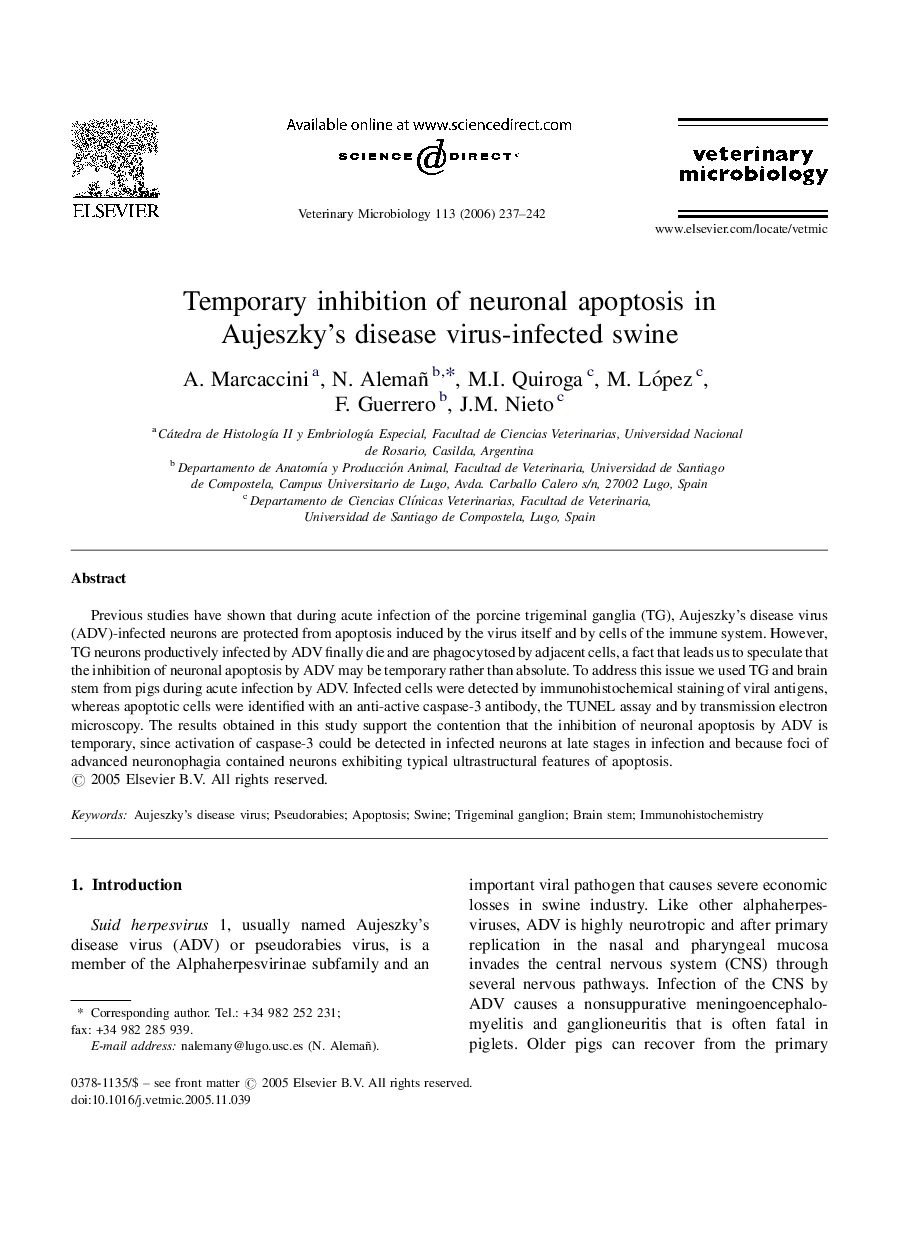| Article ID | Journal | Published Year | Pages | File Type |
|---|---|---|---|---|
| 2469736 | Veterinary Microbiology | 2006 | 6 Pages |
Previous studies have shown that during acute infection of the porcine trigeminal ganglia (TG), Aujeszky's disease virus (ADV)-infected neurons are protected from apoptosis induced by the virus itself and by cells of the immune system. However, TG neurons productively infected by ADV finally die and are phagocytosed by adjacent cells, a fact that leads us to speculate that the inhibition of neuronal apoptosis by ADV may be temporary rather than absolute. To address this issue we used TG and brain stem from pigs during acute infection by ADV. Infected cells were detected by immunohistochemical staining of viral antigens, whereas apoptotic cells were identified with an anti-active caspase-3 antibody, the TUNEL assay and by transmission electron microscopy. The results obtained in this study support the contention that the inhibition of neuronal apoptosis by ADV is temporary, since activation of caspase-3 could be detected in infected neurons at late stages in infection and because foci of advanced neuronophagia contained neurons exhibiting typical ultrastructural features of apoptosis.
